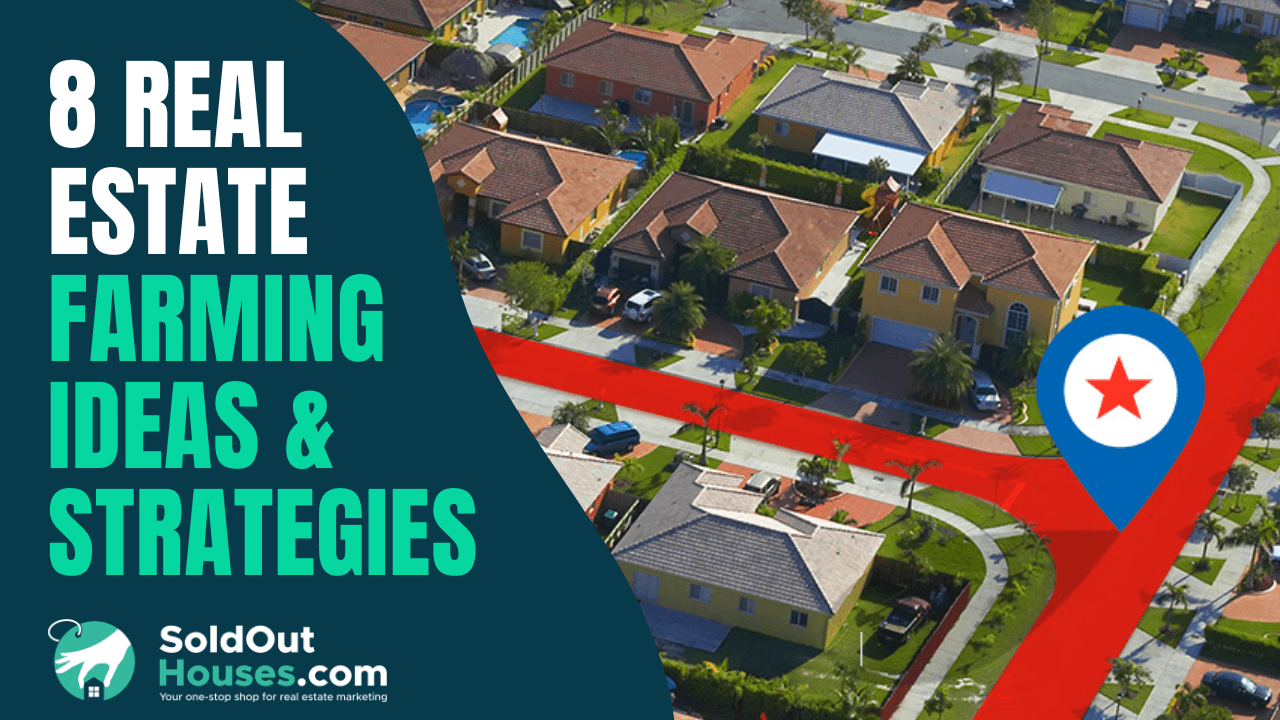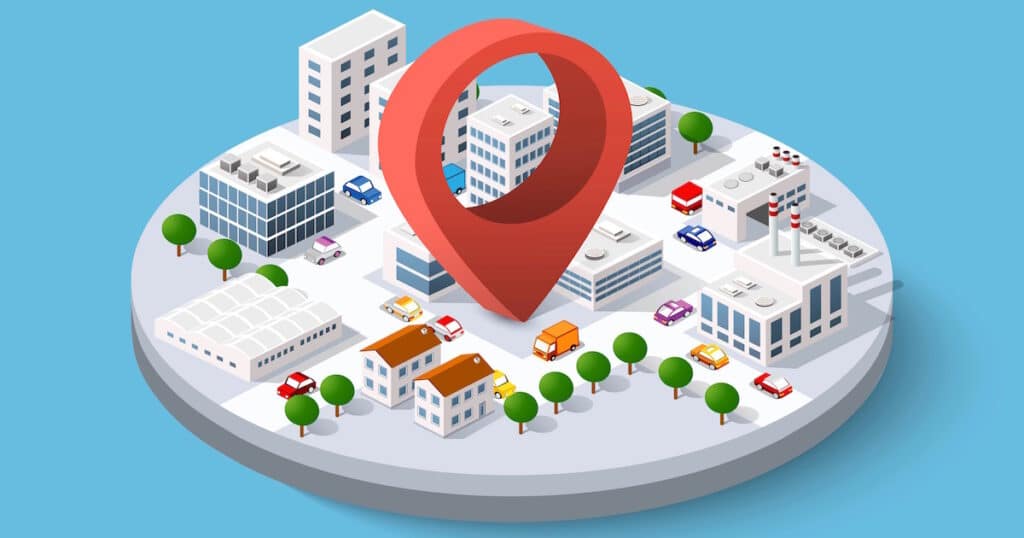Imagine not planting seeds on land and expecting a harvest! If that’s not crazy, then what is?
Same thing in real estate. To bring in clients, you have to farm! Real estate farming is a marketing approach that involves planting and developing real estate leads that bloom into future businesses. However, to be successful in this process, you must use the most effective concepts. And we are here to give you just that.
8 Most Effective Real Estate Farming Ideas & Strategies
Real Estate farming is hardly a new concept, which involves establishing an ongoing relationship with potential clients and community involvement. Do you know how to set up effective farming strategies? Here are the top 8 most efficient real estate farming ideas and strategies.
1. Proximity of farm area
It is advisable to select a real estate farm area close to your home. This way, you’ll have firsthand knowledge of the area and will be able to strengthen your ties with the locals.
Farming in your own neighborhood gives you the advantage of being the local expert, which is valuable in real estate. When speaking with clients, use your local knowledge to provide information and answer questions about nearby amenities, such as restaurants, schools, and parks.
There are numerous advantages to selecting a farming area that you are familiar with and close to your home. Some of these benefits are:
- You have ties to the community.
- You’ve already built trust with residents since you engage with them at locations like the grocery store, dentist, and movie theater.
- You can quickly connect with prospects: As a result of your interactions with locals in places like the grocery store, dentist, and theater, you already know you and most likely trust you.
- You’ll know immediately someone is thinking of selling: Because your sphere of influence is in your farming area, you’ll be among the first to know if your friend’s neighbor is thinking of selling.
2. Do your Research
The success of your real estate farming business is dependent on selecting the right location. Choose a market with high demand and make sure you’re farming for real estate leads in an area that interests you and can provide you with the funds you need to meet your real estate business plan goals.
Don’t just randomly choose a subdivision. Think about the current homeowners and whether or not they would respond positively to your marketing. If you want to attract first-time home buyers, you’ll need to relocate to a farming region that is more popular with that demographic.
Begin by asking and researching the following questions:
- What are the local amenities like?
- How desirable is the neighborhood?
- How many houses already exist in the area?
- What are the average home sale prices and turnover rates?
Also, do the following study before settling on a real estate region utilizing Google or census data to discover:
- The average household income
- The average age of the population
- The most popular modes of transportation
- Employers nearby
- Availability of schools
- Popular home designs
- Upcoming construction
- Newly built homes
- The number of real estate brokers in the neighborhood that are vying with one another
As you perform your research, keep an eye out for hints that will enable you to narrow your market.
If the neighborhood has a lot of sports facilities, like basketball courts, you should concentrate your marketing efforts on the local youngsters.
3. Bond with the neighborhood
When you’ve decided on a niche and an audience, look for events in local community centers, libraries, and churches. It’s nice to show your neighbors that you’re capable of having a little fun. Toss out the stereotype of real estate agents as stuffy used car salespeople.
Earn trust by participating in discussions and identifying yourself as a community member and real estate agent. Every now and then, include a listing or market update to keep your name associated with real estate in their area.
Participating in local events allows you to meet people and conduct basic market research. It also allows you to respond to and explain people’s inquiries more extensively. Get out there and show folks you can have a good time.
Throw a party, go to local eateries, attend local performances, and connect! You could even join the local gym. Whatever you have set up for relationship building in your farming budget will be well spent.
4. Sponsor and Support
Sponsor a youth sports team in your community. It gives you points in the community and enhances your exposure.
Did you know that real estate sells faster in the spring and summer? Make the most of this time of year by reaching out to local summer teams in need of funding.
Displaying your brand on team shirts and uniforms is a terrific way to demonstrate your involvement in the community. The players are walking billboards for your real estate company.
It should be noted that attending the games is considerably more critical and will place you in front of your potential clients during an activity with their children, an excellent method for establishing relationships and trust.
You can also have giant banners printed with your headshot, tagline, and contact information and display them across the area. When photographs of the team or sporting event are posted online, you gain even more exposure to potential leads.
Don’t limit sponsorship to team events. Consider supporting social issues by organizing food drives, walks, and bicycle events to generate funds for local schoolchildren, sick people, and the less fortunate.
5. Share emails, flyers, and postcards
Your real estate farming postcards and flyers will serve as the foundation of your farming campaign.
People simply say yes to allow you to be more personal when they grant you permission to send them an email. Now that you have their trust, send them content that is timely, entertaining, informative, and motivating.
Newsletters, postcards, flyers, market reports, just-listed and just-sold notices, and other materials are examples. We recommend distributing real estate farming materials on a monthly basis.
You’ll be giving them helpful information about their financial prospects if they decide to sell.
Send personalized postcards monthly using an automated direct mail service, and share your local knowledge to establish you as a real estate guru. Include your website, phone number, email address, and a relevant call to action.
Share messages that show you’re the go-to person for buying and selling homes and living in your neighborhood. Consider handwritten letters to add a more personal touch.
6. Partner with local businesses
Because of their proximity to residents, local businesses provide excellent relationship options. Grocery stores, medical offices, restaurants, beauty salons, and everyday service providers cater to the needs of the area residents.
Partnerships help you get repeat exposure with this real estate farming idea.
Partnerships don’t have to be expensive. The most significant advantage is the owner’s recommendation to their clients. They’ll share information about your firm, and you can reciprocate. In exchange for their collaboration, offer to include these companies on a local resource list that you provide in welcome baskets for new buyers.
Join the local chamber of commerce to determine which businesses to contact. This will provide you with access to the names of local businesses, allowing you to conduct research as needed and contact businesses you believe will be a good fit.
Joining your local chamber of commerce is also a terrific method to market your skills in your community at mixers and other events.
7. Social media utilization
Ninety-nine percent of millennials and 90% of baby boomers begin their real estate search online, so use social media to make yourself visible to audience members who are ready to purchase or sell a house. Because most adults are visual learners, they take advantage of this when sharing videos online.
Send in videos from events you’ve attended or hosted. Use these videos to remind viewers about the services you provide.
Do some research to find relevant hashtags to ensure that your target audience sees these videos.
Another excellent approach to use videos is to start a video blog on YouTube. Choose a topic and provide tips and ideas to your audience once a week or even once a month.
Another effective technique for staying in touch with neighbors and displaying your work is to join or build a neighborhood Facebook page.
You may reach thousands of individuals simultaneously with a few clicks on Ad Manager. Change the location targeting specifications during ad creation so that your ads are only visible to people who have recently visited your farm area.
Instagram and Twitter are two other social media channels that might help you cultivate your real estate farm.
8. Engage FSBOs
The most profitable real estate farming tip is to stay in touch with For Sale By Owner (FSBO) sellers because they often have their hands up and want to sell their homes right now.
According to research, they can be the simplest market for a real estate farmer to enter because, unlike most people, they have a qualified need to sell, a timeframe in mind, and they lack marketing experience and bargaining abilities. Look for FSBO chances in newspapers and yard signs.
First, meet with your prospects in person. Don’t be just another unpleasant phone call. Go the extra mile and pay them a visit in person. Expect to meet with your prospect 3–5 times before closing the deal. Don’t sell your services; instead, offer them!
Maintain constant contact with FSBO sellers by demonstrating your dedication to marketing your listings and creating connections by assisting them in marketing their homes alongside your listings.
Show as many FSBO homes to buyers as possible to demonstrate how much more buyer traffic you can generate.

I became a realtor when I was 25, Right now I’m a digital marketing expert helping realtors, brokers and real estate agents generate more leads online.

















